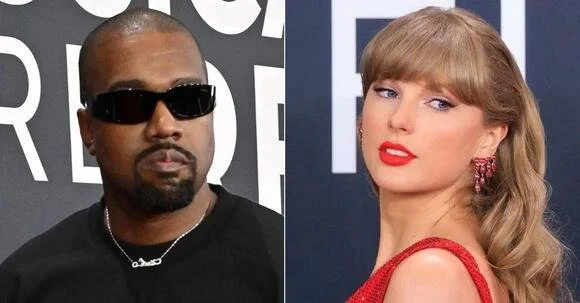Kanye West Blames Taylor Swift and MAGA Hat for Super Bowl Halftime Rejection
In a recent post on X, the controversial American singer Kanye West shared his frustrations over not being selected to perform at the Super Bowl halftime show. The 47-year-old rapper and fashion mogul explained that three significant moments in his career contributed to his exclusion from one of the world’s biggest stages. According to West, his controversial comments on George Bush, his infamous clash with Taylor Swift, and his support for former President Donald Trump with the MAGA hat were the main reasons behind the decision.
West made the claim in a now-deleted post, stating: "I never was allowed to do the Super Bowl because of three moments. George Bush doesn’t care about Black people. The Taylor Swift movement moment. And wearing a MAGA hat.”
🏆 The Taylor Swift Moment
Kanye was likely referring to the 2009 MTV Video Music Awards, where he interrupted Taylor Swift’s acceptance speech for Best Female Video to express his belief that Beyoncé should have won instead. The moment sparked widespread backlash, making it one of the most memorable and controversial incidents in MTV VMAs history. This public confrontation with Swift has haunted West ever since, with some speculating that it tarnished his image in the eyes of the entertainment industry.
👒 MAGA Hat and Political Backlash
Kanye's decision to wear the Make America Great Again (MAGA) hat, which was associated with Donald Trump’s political campaign, also drew significant controversy. The move caused a rift among many of his fans and industry colleagues, who criticized him for aligning with a polarizing political figure.
🗣️ Opinion: Is Kanye’s Self-Sabotage at Play?
While Kanye West’s post offers insight into his personal grievances, it also raises important questions about the price of being unapologetically outspoken in the entertainment industry. Kanye has long been known for pushing boundaries and speaking his mind, but some of his most notable actions—whether political or personal—have led to alienation within the very industry that once embraced him.
His clash with Taylor Swift in 2009 was undoubtedly one of those "defining moments" that may have affected his relationship with major event organizers, including the NFL, which oversees the Super Bowl halftime show. But is it fair for Kanye to blame this one moment for not being chosen? Could there be other factors at play, like his evolving career trajectory or changing public perception?
Kanye West’s support for former President Trump with the MAGA hat certainly added fuel to the fire. In a world that increasingly values political correctness and image, Kanye’s controversial stances could have put him at odds with organizations looking for more universally appealing performances.
Ultimately, Kanye’s post reflects a larger conversation about the personal cost of fame, the complexity of public personas, and how the entertainment industry balances artistry with image. It seems that, for Kanye, his unapologetic nature—whether on stage or in his personal life—may have come at a cost. Yet, one thing is clear: the public still cannot stop talking about him, which in itself is a testament to the complicated legacy he continues to build.








